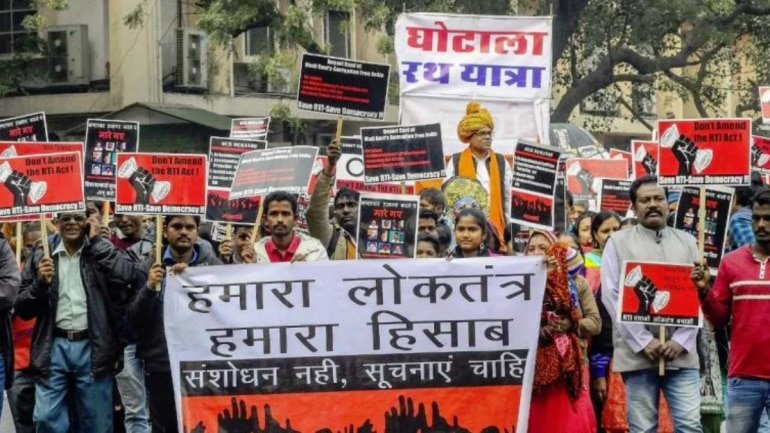
According to the findings of CHRI that it has mapped and shared on a dedicated website, 84 RTI activists have been killed, 169 assaulted and 183 have been harassed or threatened. 7 activists have also allegedly committed suicide. The website maps all such instances since 2005. Out of the total 443 incidents, 177 incidents have taken place after May 23, 2014. These include 23 incidents in 2014 (after May 23), 53 incidents in 2015, 28 incidents in 2016, 30 incidents in 2017, 32 incidents in 2018 and 11 incidents in 2019 so far. Titled the Hall of Shame: Mapping attacks on RTI users, the entire map and details of activists targeted may be viewed here.
Now, let us examine the controversial amendments to the RTI Act and key criticisms thereof:
Tenure of Information Commissioners
According to the previous provisions, the Chief Information Commissioner (CIC) and Information Commissioners (IC) were to be appointed for a period of five years. However, as per the amendment, their tenure will be decided by the central government. An uncertain tenure could affect the autonomy of the office, by way of subjugating the officer to the whims and fancies of the central government. There is thus tremendous scope for coercion, corruption and manipulation.
Salary of Information Commissioners
Previously, the salary of the CIC and ICs at both the central and state level was at par with their counterparts in the Election Commission. However, as per the new amendment, it is the central government that will determine the remuneration. This once again makes it possible for the central government to control the officers and possibly twist their loyalty. Pension deduction from salary.
In an interview to Firstpost, former Chief Information Commissioner and RTI activist Shailesh Gandhi also raises the question of organisational hierarchy saying, “In the Statement of Objects and Reasons for the bill, it is stated that the information commissions and the Election Commission cannot be at par, as the former are statutory bodies, while the latter is a constitutional body. However, this reasoning is flawed. There are several bodies such as the National Green Tribunal and the National Human Rights Commission whose members are considered to be at par with Supreme Court judges or Election Commissioners. The NGT and NHRC are also statutory bodies. As a matter of fact, this hierarchy of sorts between the constitutional bodies and statutory bodies is itself uncalled for.”
It is clear that these amendments to the RTI act are yet another attempt by a totalitarian regime to dis-empower those who dare to question its methods.